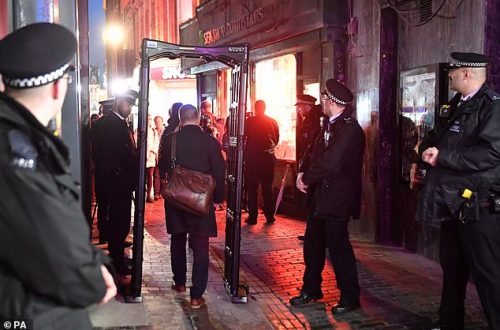Parliamentarians don’t think they are serving any purpose if they’re not constantly making new laws to deal with old problems. Trouble is, if the old laws were applied in the first place, there might be no need for new laws, which probably won’t be applied.
Take for example the new powers granted to police in yet another passive-aggressive strategy to fight criminal gangs instead of just getting tough – very tough.
Police can now – in a variation of ASBOs – ask gang members not to wear gang colours or stray into rival gang territory. Chance of compliance? A big fat zero. Chances of gangs viewing the law with more dismissive contempt? As large as a prom-night pimple!
Take this example: In 2008, the Evening Standard reported the story of an illegal immigrant called Musa Mohammed who was a “general” in a drug running gang in London. Found in possession of a large quantity of drugs, his property was seized and he was sentenced to four years. One would expect that he would be deported following his sentence. But wait!
Not even three years after this report, we have another report of a massive police sting in which a drug baron making £100,000 a month is caught. It is none other than one Musa Mohammed. In under three years, he’s back on the streets and rebuilt his drug gang empire.
So instead of putting the existing law to use which could have seen Mr Musa serve a long sentence and then be deported, our government has had a ‘better idea’.
But even this weak measure is too much for some.
Over at CiF, there is the usual rhubarbing about how these new powers will “criminalise” poor communities and be a form of “legalised racial profiling”, while in the comments the usual tripe about how these powers are aimed at protecting the middle classes. Well, here’s the unvarnished truth: the people most affected by gang violence are not the middle classes. It is generally not people in the leafy suburbs of Kent whose lives are blighted by daily terror. I suspect that the solution – if the people living among the chaos gangs create were canvassed – would be more draconian than these tepid government measures currently giving Guardian columnists fainting spells. Also, if you’re concerned about “racial profiling”, take a look at the profiles of the victims of gang-related crime in London. It is not the parents of those who have died at the hands of gangs or whose children have been sucked into gangs who are concerned with “racial profiling”. Many are demanding it. They appreciate that it isn’t about race, it’s about culture. There is a gang culture in Peckham. There isn’t one in Thame. It is a no-brainer where the attention and resources should be focused.
Once again the communities who most need support have that support frustrated by middle-glass Guardian writers because the measures proposed don’t meet some ideological purity test who don’t appear to be able to offer any answers of their own.
Of course, The Guardian writer is right that social programmes have been very effective in New York in reducing gang violence than tougher policing. Of course, there already are many such programmes in the UK, which for some reason he fails to note. Perhaps we need more. But – and this is important – while introducing social programmes, there is no evidence to suggest that NYC has gone soft on policing or on punishment after conviction.
Social programmes and tough crime-busting are not exclusive. You can’t have an appetite for the former without having the stomach for the latter.


